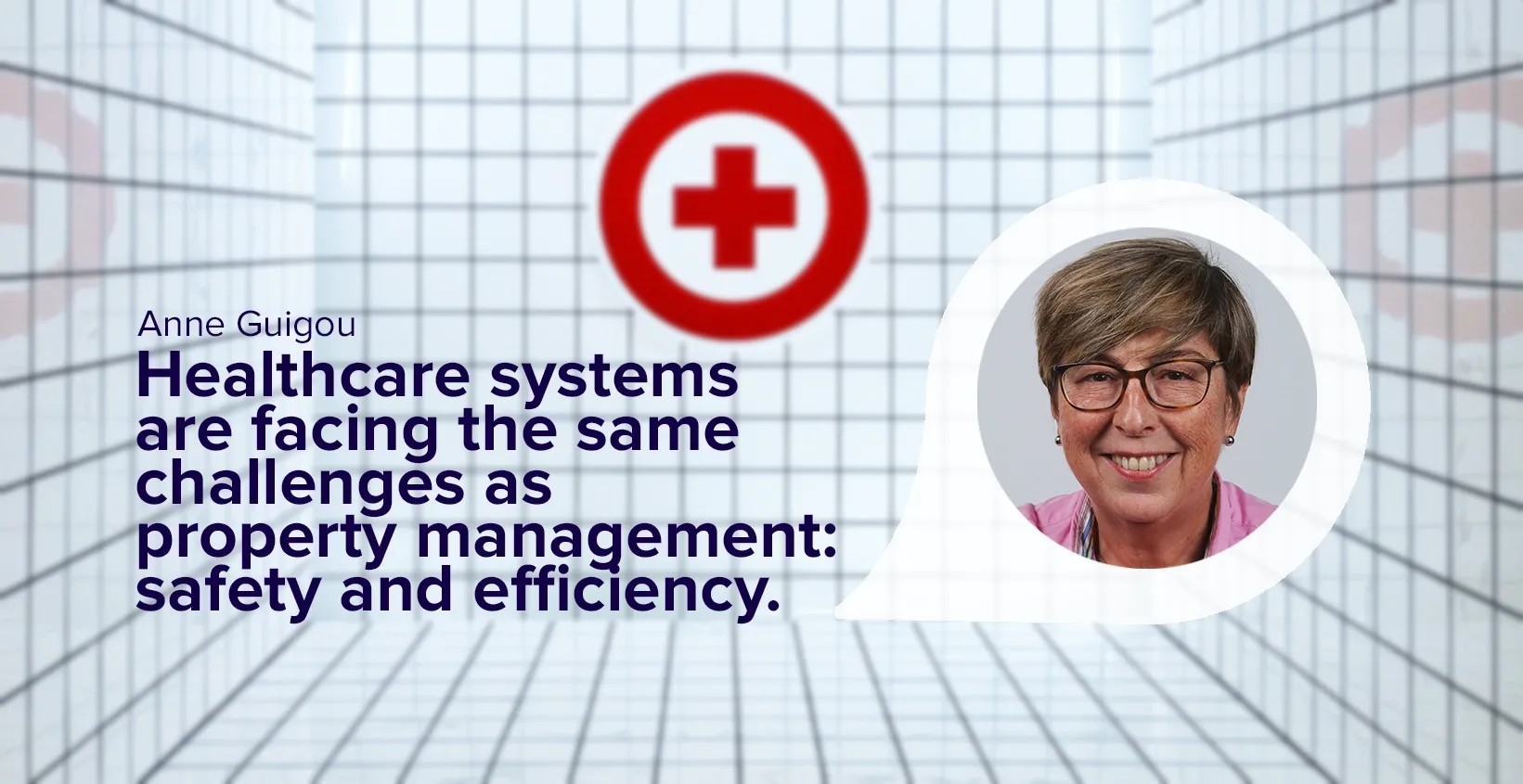Healthcare systems facing the same challenges as property management: safety and efficiency.

We had the pleasure to talk with Anne Guigou, an expert on transformations of healthcare organizations, about how Healthcare is facing new challenges and how digitalization is a key player.
Anne has more than 30 years of experience in healthcare. She started her career at Baxter, from marketing and sales department to a global position based in Chicago. After 25 years, she challenged herself, and decided to start to work with startups and companies to let them go through the healthcare system: converting markets to a new way of doing things, new ways of organization, to new products.
Urbest: What defines a good quality of service for you?
Anne: I think the quality of service is recognised by the customer feedback.
A good company has to be obsessed by serving customers, whatever the customer is, from the doctors to the patients. Beyond that, the goal is to effectively improve patient care.
For me, it is the user experience, which didn't exist 20 years ago. When I started, doctors were kings and took decisions that were not challenged. Times are changing.
Now processes have been put in place and more and more. In the last 30 years systems have changed, not only in France, all the way across Europe, in the US, even in Asia. We see central administration taking more and more importance in the decision.
I hope that the digitalization of healthcare will help to find the right balance between the best care, the best quality, the best safety, vs an economic model, which is affordable for a country and payers.
"I think the quality of service is recognised by the customer feedback."
Urbest: Which is the main benefit of digitalization for healthcare systems?
Anne: Digitalization obligates people to collaborate. They will have the same information, push a collaborative way, so it's a good tool to help break silos, because everybody from the top to the down, share the same information. This helps to gain freedom and become more efficient at the end of the day.
Urbest: What are the hurdles of regulation?
Anne: Health care facilities must comply with quality audits and regulations which are driven by health authorities but also by payors ( insurance companies in the USA).
Administratively, the administrative files that healthcare facilities must report are far away from the quality of process in care. That's an issue.
Urbest: What do you think is the main barrier that companies or healthcare centers put when they have to decide if they start to digitize their management systems or not?
Anne: I think the main barrier is resistance to change. as anybody or always.
The second barrier is not being able to deploy a new system because of the "old school" way of doing things. They try to retain their customers with the same old technology and the contracts.
Third, the size of the organization. The bigger the organization is, the more complicated to apply a new process, and they don't see the value.
"I think the main barrier is resistance to change. as anybody or always."
Urbest: COVID-19. What is your point of view about what happened and is still happening?
Anne: The western health care systems were not prepared.
They didn't anticipate the importance of the phenomenon, so then they had to lead the team on the bottom and manage by themselves. It gave some power to the people on the field and at the end of the day we realized that when you leave people alone, patients will be affected. COVID forced administrations to leave the control to the doctors, and hope that they did their best. This could help to reverse a little bit and give a little more opportunities to the organizations, instead of only following a national rule.
Urbest: Would you like to share a recommendation or something else?
Anne: I would say to the readers: "the sooner you get digital and enter the new world, the better the place, for you and for your patients.” We know that for any transformation, abandoning the way one was working for years is painful, because one gets out of their comfort zone. But we need to be clever enough. It will simplify a lot. Getting the value of a collaborative thing is much more valuable than keeping the old method, whatever it is.
Today most companies are not there because of time or resources, but transforming any organization takes time.
"the sooner you get digital and enter the new world, the better the place, for you and for your patients.”
You can also read:
How to combine the safety requirements of a Hospital with the maintenance of more than 55 hectares?
5 new ways to make facility management services more collaborative
